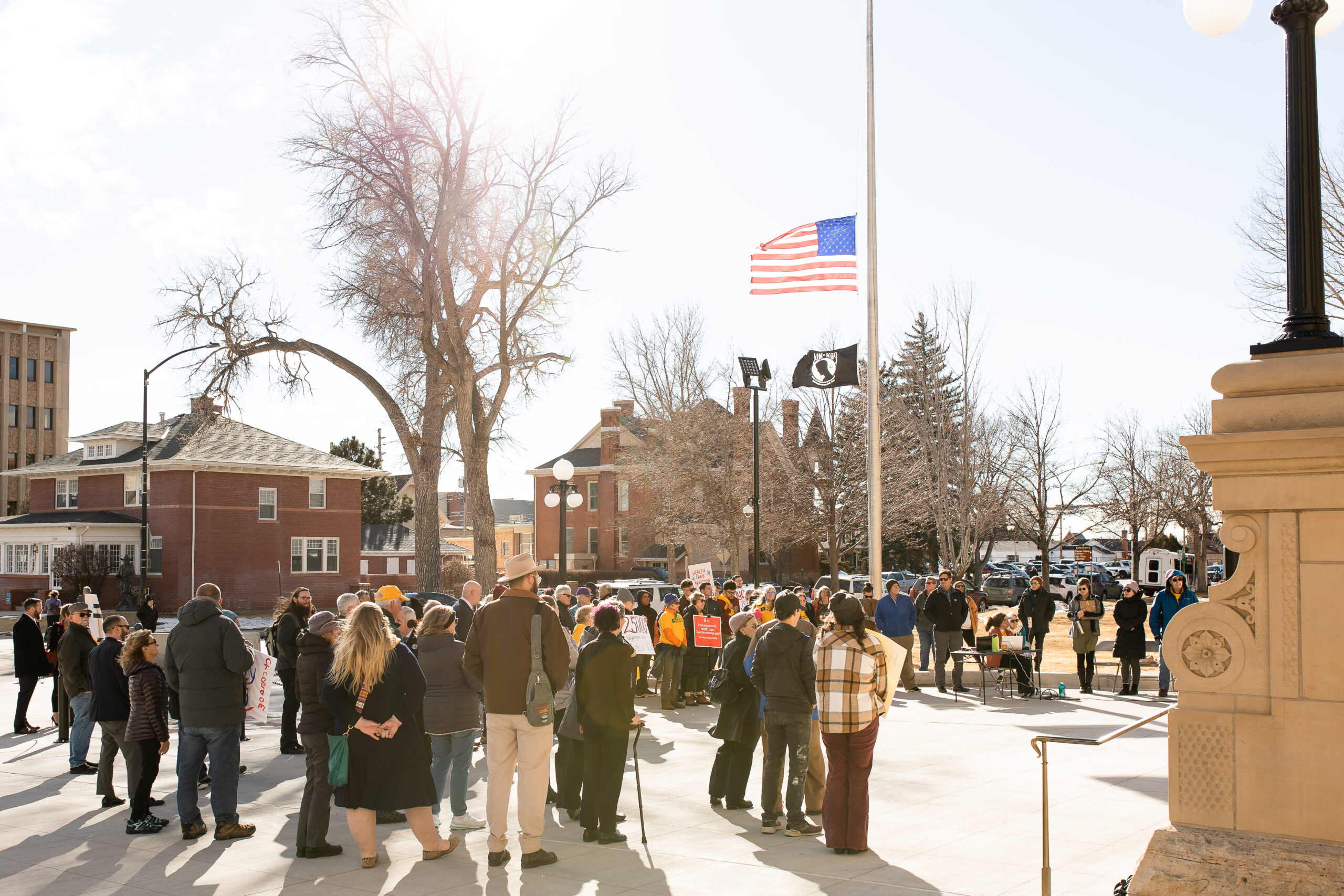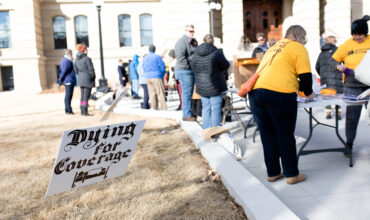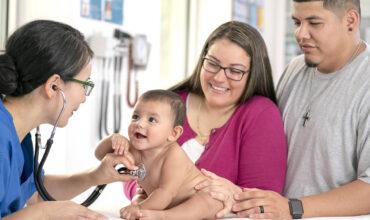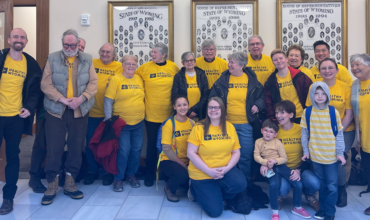Feb. 9, 2022
Ana Marchese, Healthy Wyoming Director
Email: ana@healthywyoming.org
Phone: (307) 205-9418
Medicaid for Moms passes out of House and heads to the Senate
CHEYENNE, Wyo. – Wyoming lawmakers in the House of Representatives showed their support for new mothers and their babies on Wednesday, voting in favor of House Bill 4, nicknamed Medicaid for Moms. The bill passed third reading in the House and now heads to the Senate.
House Bill 4 would extend postpartum insurance coverage offered through Wyoming Medicaid to mothers to 12 months, allowing for the health and recovery of moms so they can take care of their babies and go back to work. This Medicaid postpartum support for uninsured moms has existed for decades in Wyoming, but this critical care currently ends after 60 days.
“Passing out of the House is a huge step in ensuring new Wyoming moms have access to healthcare and mental health services and helping their babies thrive,” said Ana Marchese, director of Healthy Wyoming. “We remain optimistic that the Senate will also support this effort to help moms and their babies stay healthy.”
House Bill 4 supports many new moms in Wyoming.
The Healthy Wyoming coalition notes the following:
- 1/3 of births in Wyoming are to moms on Medicaid. These women would currently have 60 days of healthcare coverage, but HB-4 would extend that timeline to a full year.
- Moms who give birth on Medicaid are more likely to have chronic health conditions, give birth to low birth weight babies, and/or have had a preterm birth in the past.
- 1/3 of moms are unmarried when they give birth and don’t have access to a partner’s health insurance plan.
- Currently, Pregnant Women Medicaid covers those who earn less than 154% of the federal poverty level for 60 days after birth. According to the Wyoming Women’s Foundation Self-Sufficiency Calculator, women earning less than 154% of the federal poverty level — $28,197 for a mom and baby — do not earn enough to meet their basic needs. In Natrona County, $40,044 is the estimated cost for a mom and her infant to cover just their basic needs.
- For women who already have to choose between regular meals and stable housing, buying health insurance and seeking medical care becomes a luxury they can’t afford. Without regular medical care, their resulting poor health inhibits their ability to work, contribute to the economy, and provide for their children.
“It’s encouraging to see that when it really matters, Wyoming can come together to do what’s right. The House of Representatives did that today when they voted to extend critical healthcare coverage for our new moms,” said Sheila Bush, executive director for the Wyoming Medical Society, a Healthy Wyoming coalition member.
Bush added, “Wyoming’s physicians and PAs know that consistent and equitable access to healthcare following childbirth is vital for preventing maternal deaths, addressing pregnancy-related health complications, and promoting overall well-being for parents and children. WMS has faith that the State Senate will appreciate the urgency and value of this initiative and will join the House in making this happen.”
House Bill 4 also has a positive economic impact.
The Wyoming Women’s Foundation, a Healthy Wyoming coalition member, supports House Bill 4 because receiving necessary care is important so that women can avoid financial and health-related stress, return to work, and attain economic self-sufficiency. Most low-income moms work in industries that don’t provide health insurance—like retail, daycare, or food service—or they work part-time and don’t qualify for benefits.
“New moms may encounter postpartum issues beyond 60 days after giving birth. The CDC defines the postpartum period as a full year after birth because health issues related to pregnancy and birth can arise during that time,” said Rebekah Hazelton, Wyoming Women’s Foundation Director.
Hazelton added, “This is also such a critical time for the baby’s brain development. Low-income moms are particularly susceptible to postpartum depression, which can be exacerbated by financial stress on top of new-parent sleep deprivation. For these babies to get the best start in life, taking care of moms’ health that first year could make all the difference.”
Additionally, the passage of House Bill 4 would also reduce uncompensated care costs in community hospitals. According to another Healthy Wyoming coalition member, the Wyoming Hospital Association, Wyoming hospitals annually absorb more than $120 million in uncompensated care costs.




